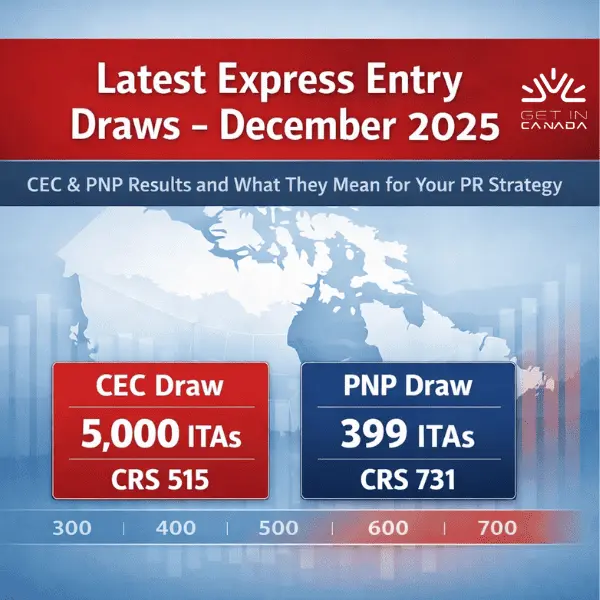Learn how to get a job in Canada
How to Land Your Dream Job in Canada: A Full guide to lead you towards landing your job in Canada
Canada is known for its diverse and welcoming environment, strong economy, and high quality of life. It’s no wonder that many people from around the world aspire to build their careers in this country. If you’re one of them, this comprehensive guide is designed to help you navigate the process of finding and learning how to find a job in Canada. Whether you’re a new immigrant or considering moving to Canada, these tips will aid you in your job search journey.
How Can I Get a Job Easily in Canada?
Getting a job in Canada might seem daunting, especially if you’re unfamiliar with the local job market and hiring practices. However, with the right approach, you can increase your chances of landing your dream job. Here are some steps to help you get started:
1. Research the Job Market
Understanding the Canadian job market is crucial. Canada has a robust economy with opportunities in various sectors such as technology, healthcare, finance, engineering, and trades. Use resources like Job Bank, LinkedIn, and industry-specific websites to identify the demand in your field.
2. Understand the Visa and Work Permit Requirements
Before applying for jobs, ensure you understand the visa and work permit requirements. The type of work permit you need will depend on your situation, such as whether you already have a job offer from a Canadian employer or if you’re planning to move as a skilled worker. The Express Entry system is a popular pathway for skilled immigrants.
3. Tailor Your Resume and Cover Letter to Canadian Standards
Canadian resumes typically emphasize skills and achievements rather than just job duties. Use a clean, easy-to-read format, and include a strong summary statement at the beginning. Your cover letter should be personalized for each job application, highlighting why you’re a good fit for the role and the company.
4. Leverage Professional Networks
Networking is vital in Canada. Join professional associations related to your field, attend industry events, and use LinkedIn to connect with professionals and recruiters. Informational interviews can also be a valuable way to learn about companies and build relationships.
5. Apply Through Multiple Channels
Don’t rely solely on job boards. Apply through company websites, recruitment agencies, and professional networks. Following up on your applications can also demonstrate your enthusiasm and interest in the position.
6. Prepare for Interviews
Canadian interviews often focus on behavioral questions. Be prepared to provide examples of how you’ve handled situations in the past. Research the company thoroughly and practice common interview questions.
Find out if you are eligible to get in Canada →
Getting Started: Essential Information to know if you are looking for a job in Canada
Social Insurance Number (SIN)
Social Insurance Number SIN is a must step you should consider having after your arrival to Canada if you are interested in working in Canada.
Resources for Job Seekers
Canada offers a wide variety of resources to help job seekers, especially immigrants and refugees, these include:
Immigrant-Serving Organizations in Canada
These organizations provide valuable services to assist with your job search:
- Résumé Writing Workshops: Tailored guidance on creating effective resumes.
- Job Search Training Sessions: Learn strategies and tips for finding jobs.
- Other Services: Various supports to help you integrate into the Canadian job market.
These services are offered upon your arrival to Canada to help you land a job in Canada.
Job Bank
Job Bank is a free resource offering occupational and career information about working in Canada. It includes:
- Job Listings: Up to 2,000 new jobs posted daily.
- Wages: Information on expected salaries.
- Main Duties: Typical responsibilities associated with different roles.
- Employment Trends: Insights into job market trends.
- Educational Requirements: Necessary qualifications for various positions.
Visit JobBank.com to search for your Dream job.
Service Canada
Provides important information on searching and applying for jobs. Visit your province’s or territory’s website for newcomers for localized resources.

Job Search Strategies in Canada
Here are a couple of important strategies to follow in the process of job hunting in Canada:
Research Companies
Identify companies you are interested in and explore their websites for job postings. Contact employers directly to inquire about job opportunities and vacancies that best fit your skills and experience:
- Job Fairs: Attend job fairs in your city or town to meet employers and discuss potential job openings. Meeting employers at job fairs allows you to connect and enhance your circle of connections which is pivotal in your job-hunting phase.
- Job Search Websites and Classifieds: Browse job search websites and newspaper classifieds to find current job postings.
- Federal Public Service Jobs: Visit jobs.gc.ca for job postings in the federal public service.
- Employment Agencies: Use employment agencies to find jobs. They can match your skills with potential employers.
- Networking: Many people land their dream jobs through connections because many companies choose to use word of mouth rather than advertising. Make new friends who are well-acquainted with the job market and have wider connections.
Application Process to get a job in Canada
When you start applying, what is the process and what’s the after-process? Let’s find out:
Cover Letter and Résumé
When you find a job, you’re interested in, you’ll typically need to apply with a cover letter and résumé. Here’s what you need to know:
- Cover Letter: A brief description of why you are suitable for the job.
- Résumé: Also known as a CV, it should list your qualifications and work experience. ( Visit here to learn how to make a Canadian Resume)
Try to make your resume as much as possible compatible with your job aspirations and the job market of Canada, which means you need to have a Canadian-tailored resume.
After You Apply
Based on your application, employers will decide whether to invite you for an interview. A job interview allows employers to meet you and ask questions to determine if you’re a good fit. It also provides you with an opportunity to learn more about the job and decide if you want to work for that organization.
Volunteering to Build Your Résumé
Many people always wonder what to do if they don’t have Canadian work experience. Volunteering is the key! Volunteering can be a great way to gain Canadian work experience, practice your English or French, build a network of contacts, and show potential employers your willingness to work hard. It can also help you secure references.
How to Find Volunteer Opportunities in Canada
- Internet Search: Look for volunteer opportunities in your city.
- Immigrant-Serving Organizations: They often have information on volunteering.
- Volunteer Canada: Visit their website for more information.
Exploring Alternative Jobs
If obtaining a license or certification in your field is taking time, consider working in an alternative job related to your profession. This allows you to gain experience and continue learning about your industry in Canada.
Federal Internship for Newcomers Program
The Federal Internship for Newcomers (FIN) Program offers eligible permanent residents and new Canadians temporary Canadian work experience and training.
Finding a Mentor for your Job search in Canada
Mentors can provide valuable advice and coaching. Here are a few important Organizations that offer mentorship programs according to the IRCC official website:
Starting Your Own Business in Canada
If you’re interested in starting a business in Canada, you’ll need a detailed business plan and wide instruction on the job market of Canada.
If you are interested in establishing your own business in Canada, the Intra Company Transferee ICT program is your perfect choice for permanent residency in Canada and citizenship in the future.
Understanding Workplace Standards in Canada
Employment Rights and Standards
There are typical Federal and Provincial Laws that protect employers and employees at the same time, these include:
- Hours of Work
- Minimum Wage Levels
- Health and Safety Standards
- Parental Leave and Annual Paid Vacations
Human Rights Protections
Employees are protected from discrimination based on age, race, gender, religion, disability, or sexual orientation.
Find out if you are eligible to get in Canada →
Navigating the Canadian job market requires persistence and resourcefulness. Utilize the resources and strategies outlined in this guide to improve your chances of finding employment. By building a network, gaining Canadian experience, and understanding workplace standards, you’ll be well on your way to get a job in Canada.











